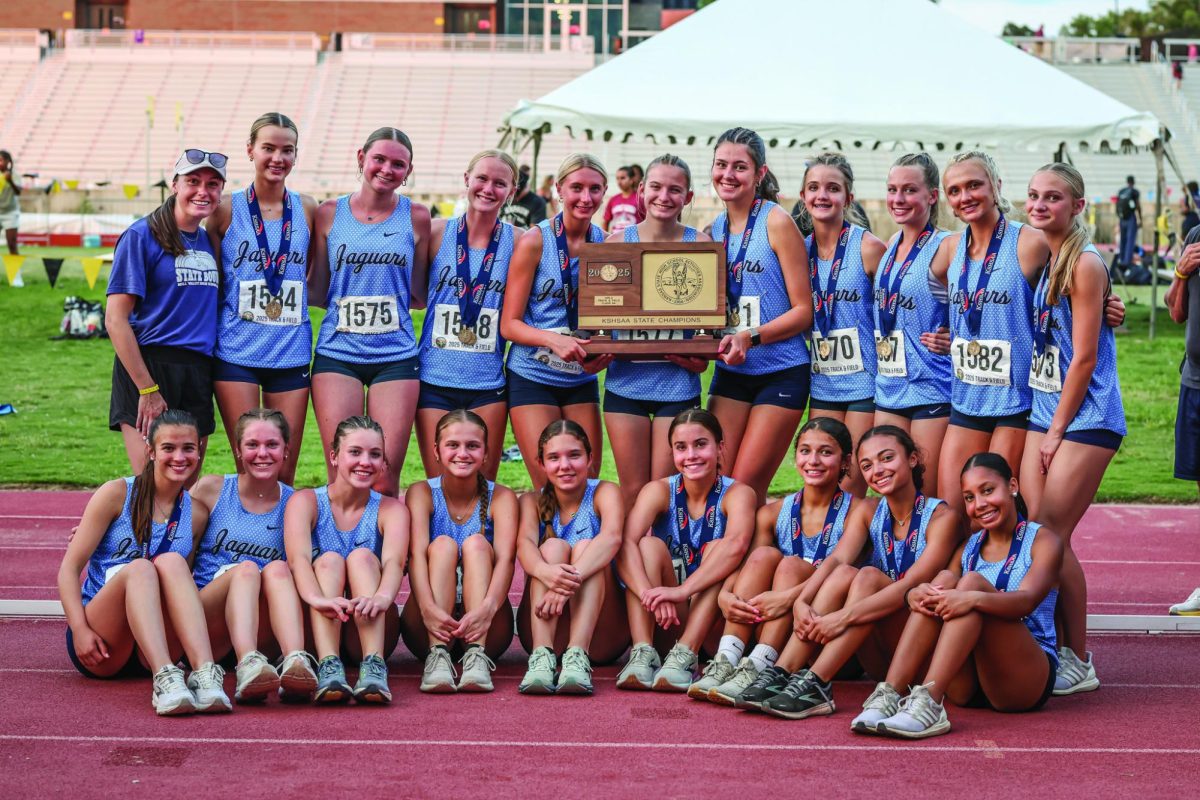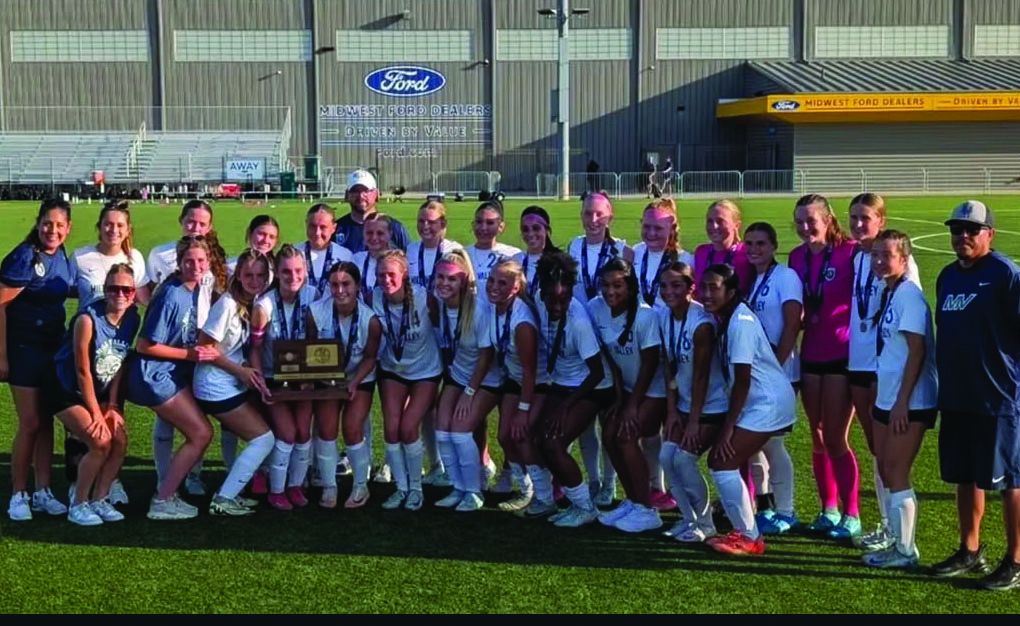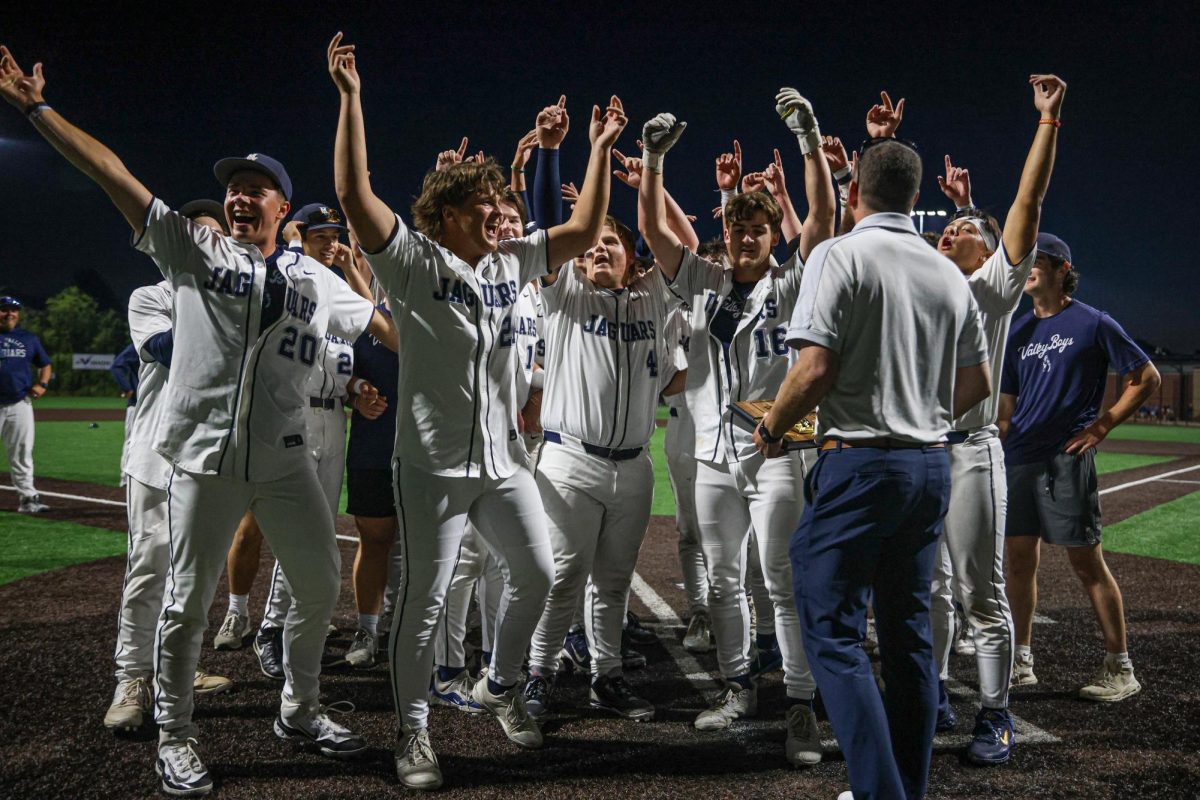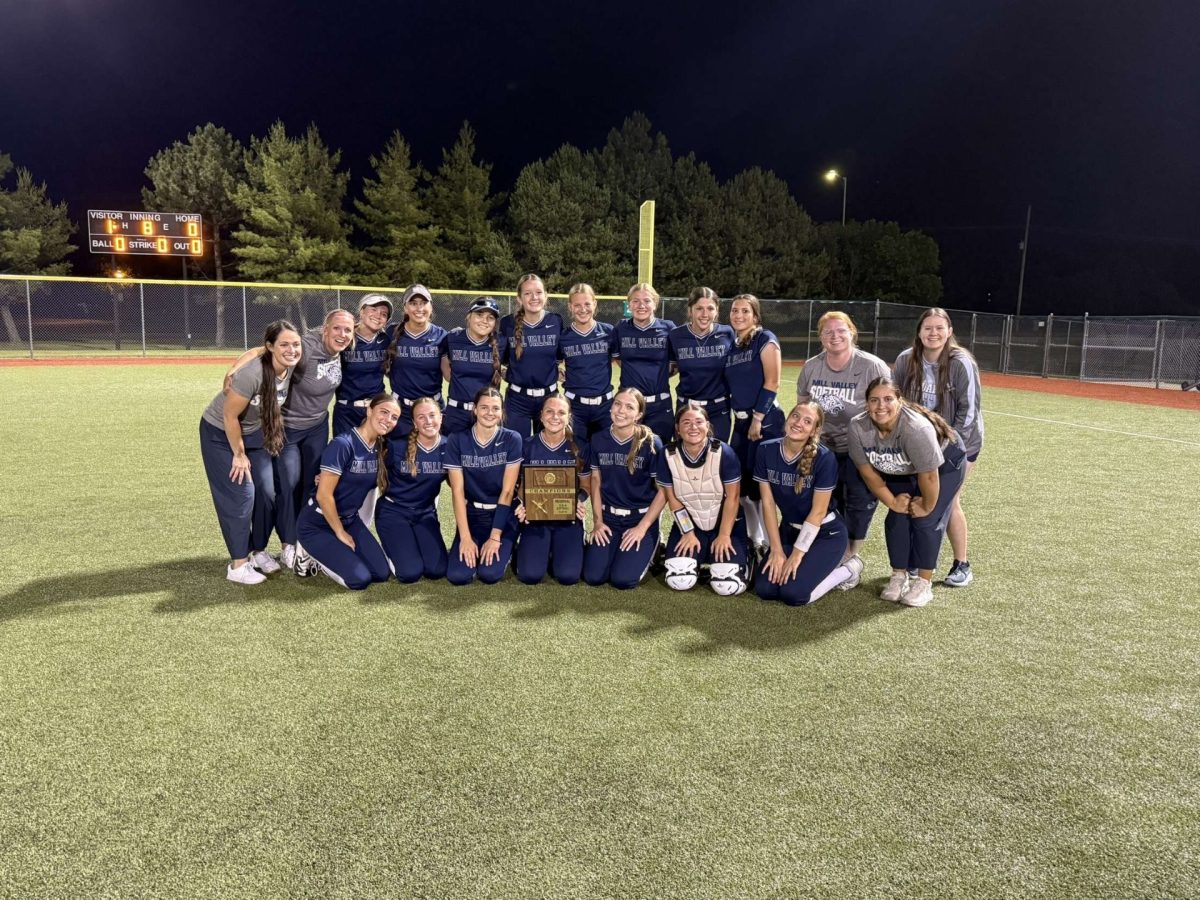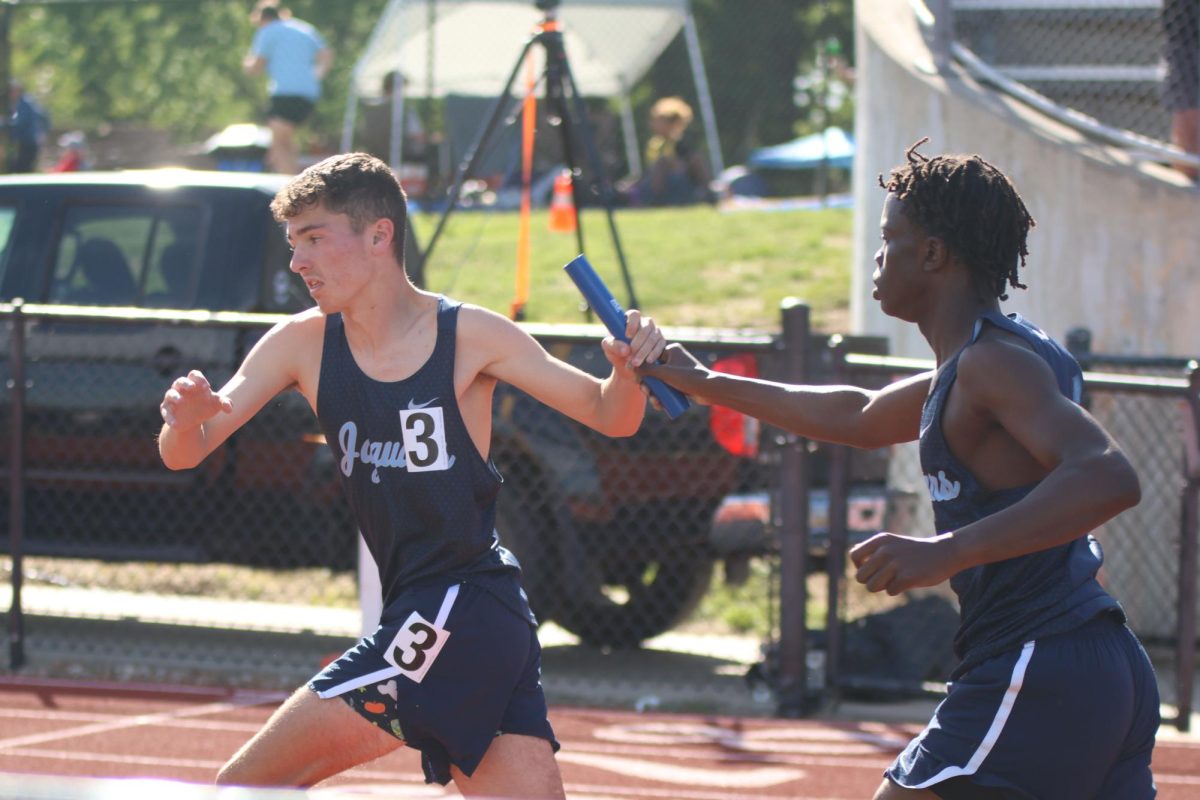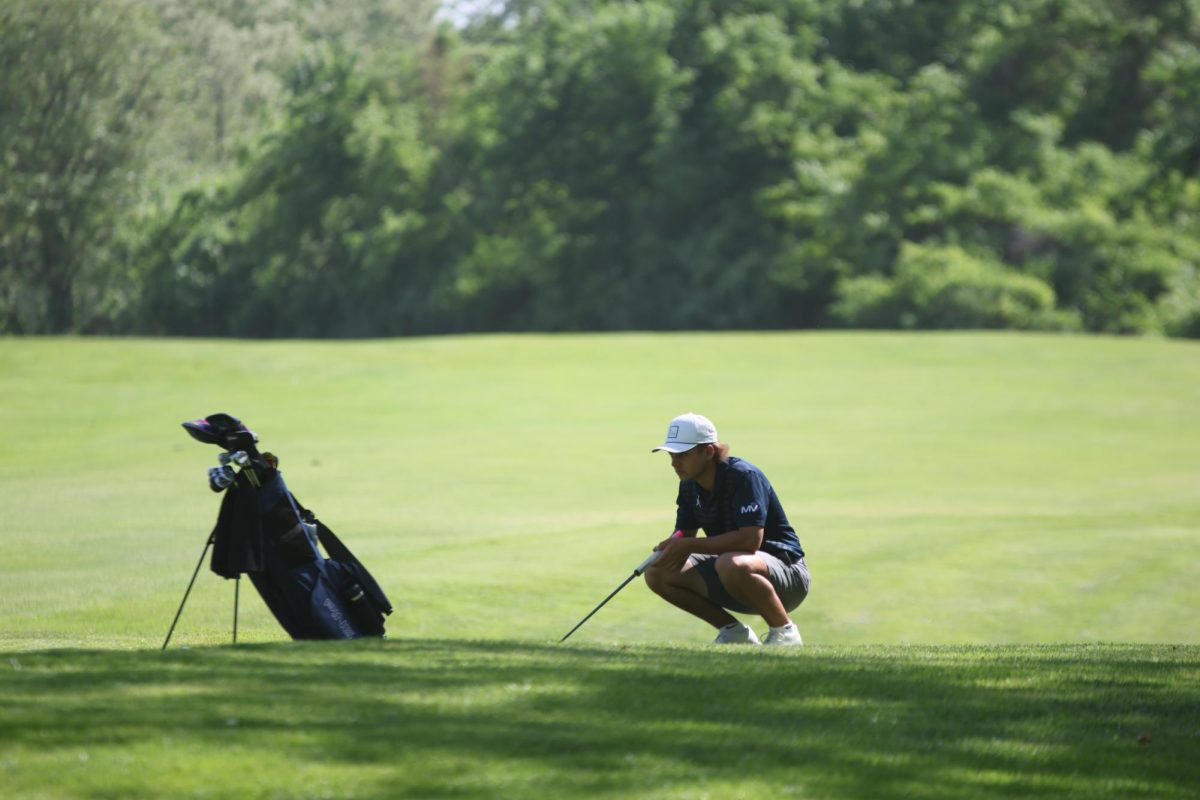With the student population continuously growing each year, the idea of joining a new athletic league is on the minds of players, coaches and parents.
“People are talking about it a lot,” athletic director Matt Fedde said. “But we have not formally started anything.”
Junior soccer player Hugh Ebb sees both the advantages and downsides to joining a league like the Eastern Kansas or the Sunflower League, which both include more 5A and 6A schools than the Kaw Valley League.
Last season, the boys soccer team went 6-1 against teams from the KVL, but 2-3-1 when facing teams from the EKL or Sunflower League.
“I think that [switching leagues] would raise our skill level and competitiveness but we would lose a lot more games in the first few years,” Ebb said.
At the recent EKL league cross country championship, the boys first place winner ran a 16:17.9 5K, while the KVL winner was almost a minute behind with a 17:13.1. None of the top five individuals from the KVL, including sophomore Landon Scott and senior Connor Mehalovich, would have placed in the top five in the EKL competition.
The same is true for the girls competition. The KVL first place winner was 43.6 seconds behind the fifth place runner from the EKL.
The large gap in time has been noticed by some athletes.
Junior track athlete Keenan Ford thinks that if the school were to move to the EKL or Sunflower League, the athletic programs would suffer.
“We would be dominated,” Ford said. “We wouldn’t be able to win any games.”
Junior soccer player Carlie Howe thinks differently.
“In the long run, it would be better for us because we would be more prepared for the post-season,” Howe said.
After looking at the fact that the boys basketball team went 10-4 last season against KVL teams but were a winless 0-4 against EKL or Sunflower League teams, head boys basketball coach Justin Bogart sees the advantages to continuing in the KVL. However, he also thinks some aspects of joining a more competitive league could pay off in the long run.
“You can look at it two ways,” Bogart said. “The better competition you play, the more prepared you will be. That would pay dividends in the post-season. But there is also something to be said about getting wins and building confidence.”
Fedde shares the same idea that tough competition will prepare a team for the post-season.
“It only makes sense for us to play competition that better prepares us for the post-season and teams we will see in the off-season,” Fedde said. “If we get used to playing harder competition, we will acclimate to it.”



